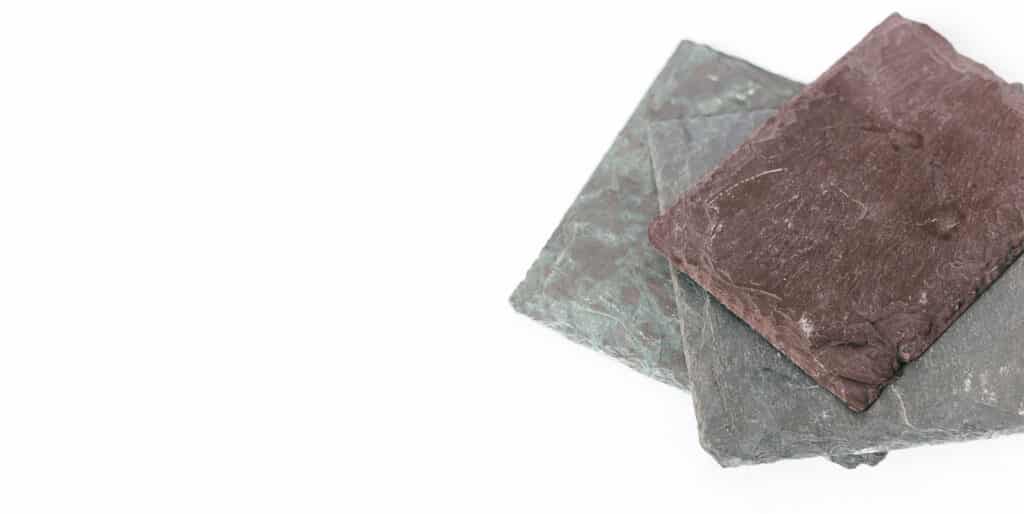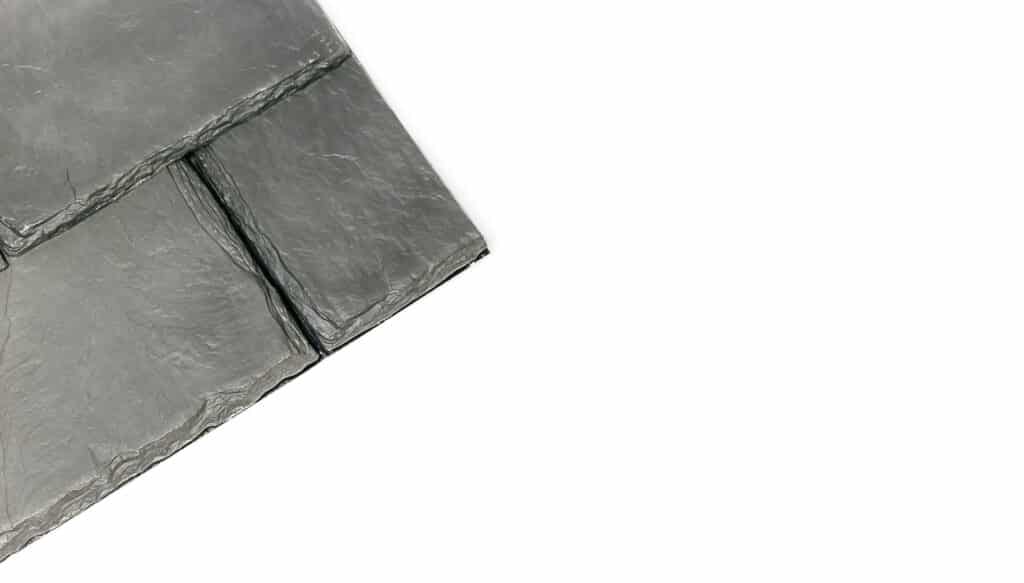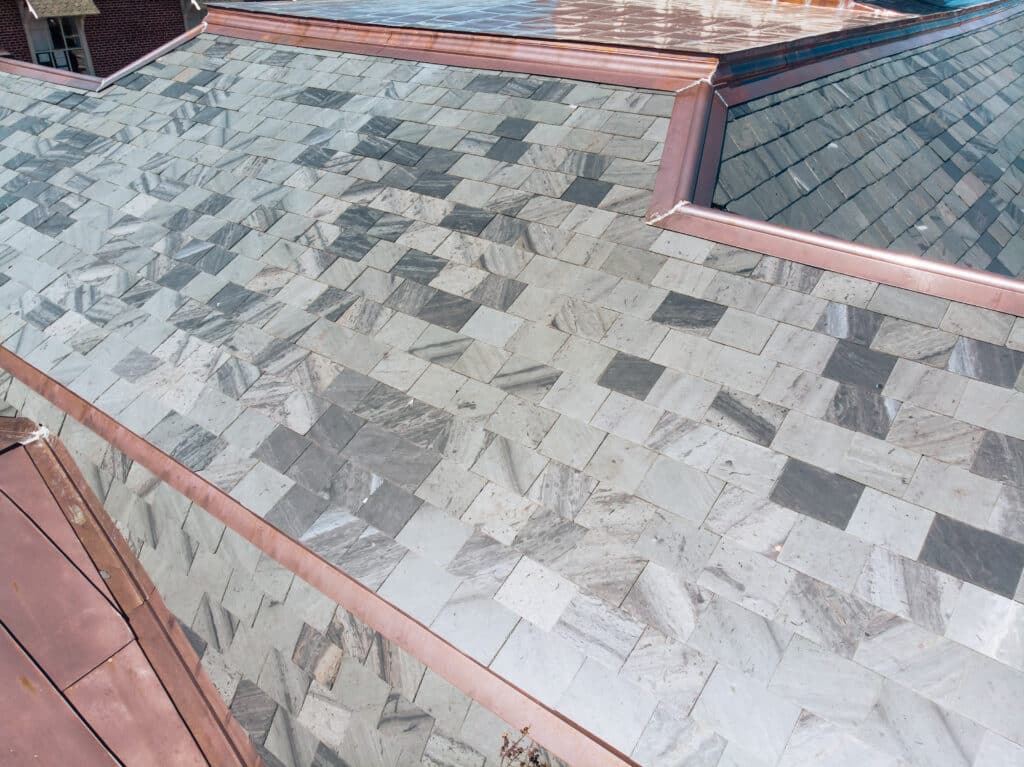Tempted to cover your roof with slate? We don’t blame you! Slate is a classic premium roofing system that has maintained its beauty and desire for hundreds of years. But, there are some aspects of slate roofing products you should know before making the decision to invest.
Slate shingles are made from natural slate rock that is hand split, giving the tile edges a beautifully non-uniform appearance. Unlike shingles, slate tiles are installed by hand one at a time, which requires extraordinary attention to detail and craftsmanship.

Pros of Natural Slate:
Natural slate shingles are incredibly long-lasting and highly customizable. Due to the nature of a slate roof’s installation, it is possible to choose tiles in staggering widths and variating colors to achieve a more stylized, unique look. Not to mention, that stylized roof is built to last! Slate roofs in favorable conditions can last 100 years or more, making it very likely that you will not have to replace your roof again in your lifetime. This degree of longevity certainly pays off!
Cons of Natural Slate:
Slate roofing is also an incredibly complex system to install. Yes, slate rock is naturally very durable to weather conditions, but slate tiles can crack and break if a roofing crew is reckless with their installation process. This highlights the importance of hiring a highly experienced and skilled roofing contractor to install your slate roof. On top of this, slate is a very heavyweight material, which means any structure it covers has to be optimized for that weight. If your home has exceptionally sturdy framing and the support necessary, this shouldn’t be an issue. However, if your home wasn’t built for a roofing material of this weight, then you might consider synthetic slate.
Synthetic slate shingles are made of recycled materials and are modeled after natural slate with chisel marks to add the unique, imperfect look of slate rock!

Pros of Synthetic Slate:
Synthetic slate tiles weigh a fraction of what natural slate weighs, which means no additional structural support is needed with installation! This makes this the a great slate option for a majority residential constructions. Synthetic slate is also incredibly durable as it is treated with ultraviolet inhibitors to protect from sun deterioration. Like natural slate, synthetic slate roofs can also be stylized with varying tile sizes and colors.
Cons of Synthetic Slate:
A disadvantage of synthetic slate is that the material has not yet been in the market for its suggested lifetime to accurately observe how long it lasts. Of course, synthetic slate tiles are the result of extensive research and rigorous testing, but it is still one of the newer roofing system materials the world has to offer. Additionally, each synthetic slate manufacturer produces products uniquely, so you should rely on your roofing contractor’s expertise when choosing the best fit for your home’s needs.



